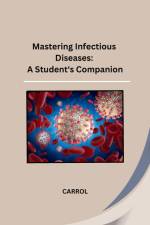av Carrol
371
Dermatopathology is a specialized field within dermatology that focuses on the study and diagnosis of skin diseases through the examination of skin tissue samples. It is a crucial aspect of dermatology as it provides valuable insights into the underlying causes and mechanisms of various skin conditions. In this subchapter, we aim to provide students with a comprehensive understanding of dermatopathology and its significance in the field of dermatology.To begin with, dermatopathology involves the analysis of skin biopsies, which are small pieces of skin tissue removed for examination under a microscope. These biopsies are obtained through various techniques, such as punch biopsies, excisional biopsies, or shave biopsies. Once the samples are collected, they are processed, stained, and examined by dermatopathologists, who are specially trained physicians with expertise in both dermatology and pathology.The primary goal of dermatopathology is to establish an accurate diagnosis by analyzing the structural and cellular changes within the skin tissue. This involves identifying the presence of abnormal cells, inflammation, infections, tumors, and other pathological changes. Through detailed examination, dermatopathologists can determine the nature of the disease, its severity, and potential treatment options.In addition to diagnosis, dermatopathology also plays a vital role in monitoring disease progression and response to treatment. By comparing biopsies taken at different time points, dermatologists can assess the effectiveness of therapeutic interventions and make adjustments as necessary. This aspect of dermatopathology is particularly important in chronic skin diseases, such as psoriasis or eczema, where long-term management is required.Moreover, dermatopathology contributes to the advancement of medical knowledge and research. By studying skin biopsies, researchers can uncover new insights into the pathogenesis of various skin diseases, identify novel therapeutic targets, and develop more effective treatment strategies. This research is crucial for improving patient care and expanding the understanding of dermatological conditions.


